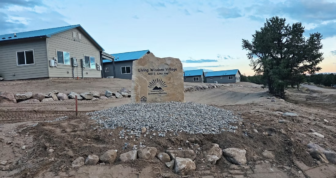By: Sydney Byer, Senior Manager of Advocacy & External Affairs, Siguiente50
This article has been updated as of June 6, 2025. * Denotes bills that were passed but vetoed by the Governor.
Colorado lawmakers just wrapped up another whirlwind legislative session. Despite a tight budget and mounting federal news alerts, the General Assembly did its best to prevent further harm to the state’s most vulnerable. This year, lawmakers reinforced protections for historically marginalized groups and avoided cuts to critical programs and services. Older adults continue to not receive as much attention despite the growing number of aging Coloradans facing economic insecurity in our state. However, the General Assembly passed some legislation that could make it more affordable to age in Colorado.
As a private foundation, Next50 did not take positions on any piece of legislation this year, and the summary below is for general educational purposes.
Making Aging at Home Easier for Those on Medicaid
It can be expensive for older adults to age at home, with costs around home health care, home modifications, and general basic necessities increasing. A standout was HB25-1184, which allows life care institutions to provide services in people’s homes while they wait for admission.
Several Medicaid reforms also may make life easier for individuals, including older adults who utilize the program. HB25-1162 streamlines the renewal process, especially for those on fixed incomes, while SB25-308 expands Medicaid coverage to include social supports like housing and food access.
Another bill, HB25-1213, ensures individuals receive continuity of home and community-based covered services through Medicaid or receive communication of a timeline if the service is being discontinued. It can provide peace of mind, particularly to older adults reliant on these services.
While approximately 12% of older adults are receiving Medicaid in Colorado, coverage expansion is incredibly impactful.
Protecting Pocketbooks and Personal Data
The rise of frauds and scams makes it more expensive to age in Colorado. Thankfully, this year saw a few efforts to avoid additional costs. One win for older adults was SB25-079, which cracks down on fraud perpetrated using crypto ATMS. Scammers have targeted older adults through these machines and defrauded Coloradans out of tens of thousands of dollars. This bill puts limits on transactions and offers protections if someone gets duped. Additionally, HB25-1088* fights back against surprise ambulance bills, and HB25-145 makes it easier to cancel those sneaky auto-renewing subscriptions.
HB25-1234 protects utility customer data. However, it lost a piece that would have banned shutoffs in extreme weather, which likely would have been most impactful to older adults.
Safer Homes and Stronger Communities
Colorado also made progress on housing, which remains a huge cost for older adults. Lawmakers passed SB25-006, investing $50 million in new affordable housing. While still unsigned by the governor, HB25-1004* bans rent-setting algorithms that artificially drive up prices. Approximately 19% of individuals over the age of 65 continue to rent in the state of Colorado and a few tenant protection bills passed this session. HB25-1240, HB25-1249 can help individuals stay housed, especially those with subsidies or tight finances.
General Accessibility and Affordability
Other bills that at first glance may seem unrelated to aging could have a direct impact on older adults. HB25-1030 updates building codes to improve accessibility. HB25-1007 strengthens emergency planning for paratransit. HB25-1017 supports aging in place by expanding integrated care for people with disabilities. SB25-169 supports the implementation of the use of SNAP benefits on meals at restaurants. Lastly, HB25-1065* would allow people 70+ the option to opt out temporarily or permanently of jury duty.
A Few Missed Opportunities
While over 500 bills passed this year, it was clear that legislation that would require additional costs to the state would struggle to be approved. We saw that with a few bills that could have provided direct financial relief for older adults. SB25-013, the extension of the Senior Housing Income Tax Credit for low-income older adults, failed. HB25-1199, a bill allowing property tax payments in installments, and HB25-1156, a permanent tax relief for older adult homeowners, were both lost. The number of economically insecure older adults continues to grow in Colorado. Under the current environment, the future budget looks bleak, making it difficult to see how older adults will be prioritized.
Advocacy Makes It Happen
While challenges remain in supporting economic well-being for older adults in Colorado, it is clear that advocates must continue to show up, speak out, and inform legislators of the needs of older Coloradans.
* Denotes that the bill was vetoed.




